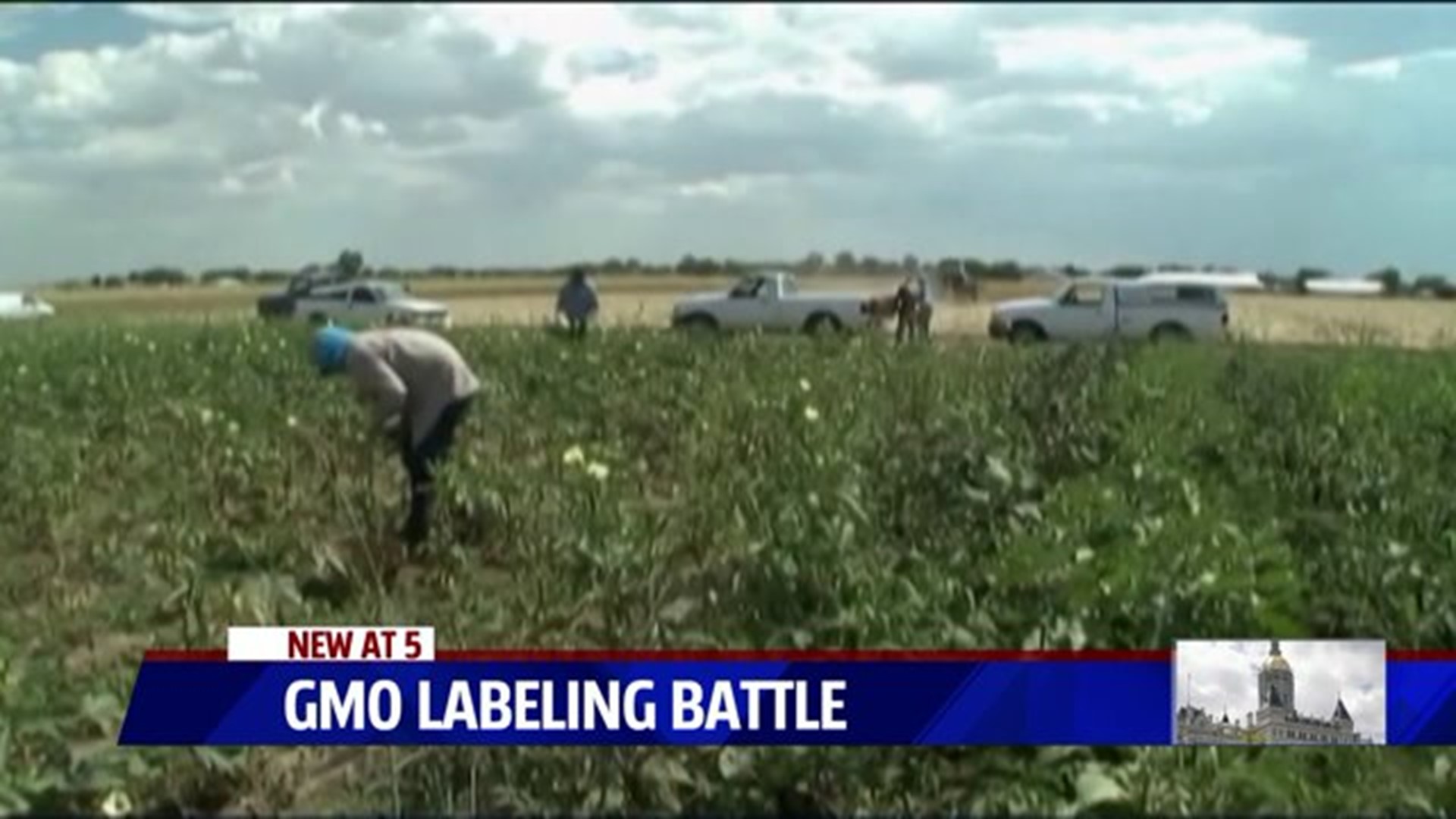HARTFORD--A special guest was on hand for a hearing at the state Capitol Thursday about GMO labeling for children's products.
Jerry Greenfield, famous co-founder of Ben & Jerry's ice cream, joined Connecticut state Rep. Diana Urban, D-North Stonington and Stonington, to support the labeling of foods with genetically modified ingredients.
Urban is the House chair for the state Committee on Children, and she is supporting the bill with her counterpart in the Senate, Dante Bartolomeo, D-Meriden. Together, the co-chairs have introduced "an act concerning the use of genetically modified organisms in children's food," which would require children's foods and infant formula to label all GMO ingredients.
Connecticut did pass a GMO labeling bill in 2013, but it can't take effect until at least four other states in the Northeast--with a combined population of no fewer than 20 million--approve similar laws. Vermont, where Ben & Jerry's is based, was the first state in the Northeast to pass GMO labeling laws without any conditions.
"I was incredibly pleased to be in Hartford in 2013 to support the campaign that made Connecticut the first state in the nation to pass GMO labeling legislation," said Ben & Jerry's Greenfield. "I am also proud that my home state of Vermont will require GMO labeling starting July 1 of this year. It's great to be back in Connecticut to urge lawmakers to remove the trigger and join Vermont in standing up for its citizens' right to know what is in their food."
Genetically modified foods contain organisms that have had their DNA changed in a way that doesn't naturally occur. This can be through the introduction of genes from a different organism, as well as other ways, and is currently used primarily to increase the yield for crops by making plants resistant to diseases. However, the field of GMOs is expanding rapidly, and could apply to animals in the future, and may be used for other reasons, such as increasing nutrients, something that is already done in parts of the world.
"It is critical that we protect our children as their bodies grow," Rep. Urban said. "There are many questions about the impact of GMOs on children's developing bodies and immune systems. Over 60 countries have restrictions on GMOs. It is the right thing to require labeling of GMOs. We should be able to make informed choices about what our children eat."
"We should not be feeding our children anything containing GMOs. Their cell development is too rapid to risk digesting and metabolizing genetically engineered organisms," said Sen. Bartolomeo. He also said "it is vitally important for people to become educated about GMOs and for us to give parents a choice regarding labeling and some peace of mind when it comes to their children."
However, not all were supportive.
"This is just another attempt by the anti-science movement in our state to discredit foods and products that are completely safe and nutritionally equal," said Paul Pescatello, executive director of CBIA’s Bioscience Growth Council. "GMO technology is a great advancement that will enable us to feed the growing world population. Efforts to make GMOs seem scary or unsafe to the general public are irresponsible."
And some think that a law would be unenforceable, regardless of if GMOs should or should not be labeled.
"How would manufacturers or store owners determine what constitutes a 'children's food?'" asked Tim Phelan, president of the Connecticut Retail Merchant’s Association. “Asking store owners to police this sort of policy is unrealistic to enforce at best, and detrimental to the businesses and the customers we serve here in Connecticut."
To learn more about GMOs, click here.

